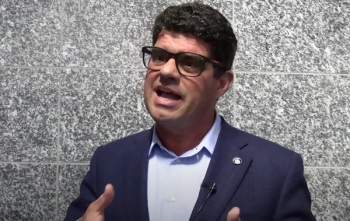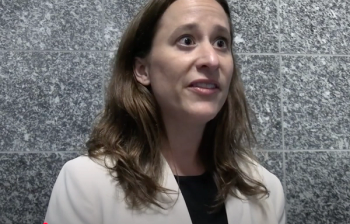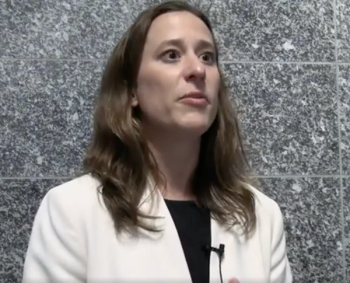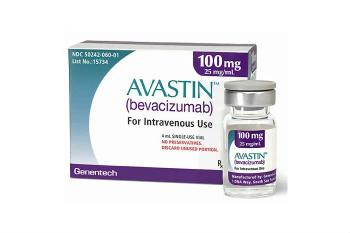
In a Q&A with Jeff Casberg, MS, RPh, senior vice president of clinical pharmacy services at IPD Analytics, Casberg explains the evolution of specialty drugs, the future of GLP-1 competition and what to expect from the traditional drug pipeline.

In a Q&A with Jeff Casberg, MS, RPh, senior vice president of clinical pharmacy services at IPD Analytics, Casberg explains the evolution of specialty drugs, the future of GLP-1 competition and what to expect from the traditional drug pipeline.

Current observations and foresight into the world of biosimilars, GLP-1s, PBM and payer trends, according to Jeff Casberg, MS, RPh, senior vice president of clinical pharmacy services at IPD Analytics, and Doug Long, MBA, vice president of industry relations at IQVIA.

At the 2025 AMCP annual meeting in Houston from March 31 to April 3, John M. O'Brien, Pharm.D., MPH, president and CEO of the National Pharmaceutical Council (NPC), shared concerns and potential reforms in a conversation with Managed Healthcare Executive.

Here’s what you missed this week on Managed Healthcare Executive.

The FDA has recently approved two new prophylactic treatments for people with hemophilia who develop antibodies to clotting factors.

Doug Long, BA, MBA, vice president of Industry Relations at IQVIA, shares what's happening in the growing GLP-1 and biosimilars space. Long was a presenter at the annual AMCP 2025 meeting in Houston, where he discussed these topics and more earlier this week.

Originally developed to treat Type 2 diabetes, glucagon-like peptide 1 (GLP-1s) are now being studied to explore their effects on various other conditions, such as sleep apnea, substance use disorder and Alzheimer’s disease, according to panelists participating in a keynote session of the Academy of Managed Care Pharmacy annual meeting today in Houston.

Maria Lowe, Ph.D., associate vice president of Pharmaceutical Intelligence at Institute for Clinical and Economic Review (ICER) addresses the possible gene therapies that we could see reach the market this year.

Maria Lowe, Pharm.D., BCPS, associate vice president of pharmaceutical intelligence at the Institute for Clinical and Economic Review, described specialty drugs as high-cost treatments requiring complex handling or disease management and highlighted key upcoming approvals, including a new PCSK9 inhibitor for lipid lowering and tolebrutinib, a Bruton's tyrosine kinase (BTK) inhibitor, which could become the first in its class approved for multiple sclerosis.

Julie Patterson, Pharm.D., Ph.D., of the National Pharmaceutical Council, tells Managed Healthcare Executive at the annual AMCP meeting in Houston that the Inflation Reduction Act of 2022 is a policy that seems to be leading to more consequences than it is benefits.

At the AMCP 2025 meeting, Julie Patterson, Pharm.D., Ph.D., of the National Pharmaceutical Council, explained that the impact of the IRA drug negotiation program on patient access is still unclear, but early research shows that coverage for selected drugs has been strong. However, as Medicare Part D undergoes changes, there are concerns about how plan incentives, formulary design and utilization management might affect future access.

Juan Carlos Scott, president and CEO of the Pharmaceutical Care Management Association (PCMA), and Marissa Schlaifer, RPh, M.S., vice president of policy at Optum.

At the AMCP 2025 annual meeting, Sean Shirk, Pharm.D., stressed the need for payers to stay informed and engaged with legislation to sustain site-of-service efforts despite growing restrictions.

Scott Biggs and Douglas M. Long of IQVIA delivered a keynote on 2024-2025 healthcare and pharmaceutical trends, highlighting drug shortages, pharmacy closures, and the United States dependence on imported pharmaceuticals.

Co-presenter, Sean Shirk, Pharm.D., director of specialty clinical solutions at Prime Therapeutics, discussed this topic during a presentation on legislative impacts on site of service at the AMCP 2025 annual meeting in Houston on Tuesday.

Connie Estep, Pharm.D., BCGP, director of specialty clinical solutions at Prime Therapeutics, presented on legislative impacts on site of service at this year's AMCP meeting in Houston.

Researchers say payers should take the added costs of drugs prescribed to deal with GLP-1 side effects into account when considering the financial impact of the popular class of drugs.

Balancing the cost, access to and risk management of CAR-T cell therapies is critical, according to a panel of experts who presented at the annual meeting of the Academy of Managed Care Pharmacy in Houston.

Survival rates have improved as treatment advances have multiplied, including CAR-T and bispecific antibodies.

By 2023, approximately 1 in 5 patients with non-small cell lung cancer or metastatic colorectal cancer were treated with a bevacizumab biosimilar.

Digital solutions are needed in healthcare now so that more patients can get the access that they need, according to Vin Gupta, M.D., MPA, former chief medical officer of Amazon Pharmacy and a leading health policy expert.

A Prime Therapeutics analysis of real-world data has found that medical costs for patients taking GLP-1 drugs for obesity had increased by about $1,338 per member, compared with a matched control group.

The annual meeting of the Academy of Managed Care Pharmacy will take place in Houston from March 31 - April 3 at the George R. Brown Convention Center.

Leaders at UC Davis Health created an emerging therapies committee to review and prepare for the wave of treatments that cost millions of dollars.

After the onboarding of cell and gene therapy bogged using normal pharmacy and therapeutics (P&T) committee procedures, UC Davis Health set up an emerging therapeutics committee to streamline and speed up the process of delivery expensive cell and gene therapies.

Spending on the GLP-1 class of therapeutics is expected to grow by 378% to $8.1 billion by 2027.

Up to 50 generics could be approved this year, including Victoza to treat patients with diabetes. If generics of Victoza become available, this would the first GLP-1 to face generic competition.

Andel, principal of CommonHealth Solutions LLC, weighed in on potential strategies and challenges for Part D plans in navigating medication formulary limitations during catastrophic coverage phases in this second part of a two-part video series.

One result of the Inflation Reduction Act shifting a greater proportion the cost of drugs during the catastrophic phase of coverage to the Part D plans result may be narrower formularies.

Innovative contracts are becoming more common for gene therapies. They aim to balance a therapy’s cost-effectiveness and affordability, as well as address the uncertainty of long-term benefit.